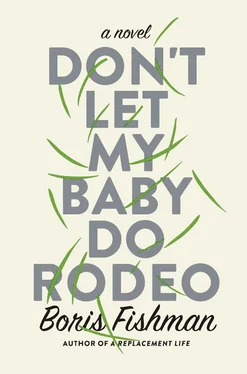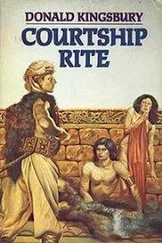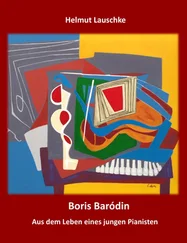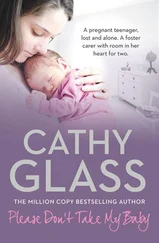“About this we didn’t know,” Maya said fearfully.
“So he chewed some grass,” Alex said unpersuasively. “When a boy. .” he started and trailed off.
“He went and picked twenty pouches of grass,” Eugene said, opening his hands.
“It was a science project,” Maya said. “I walked around with him. I didn’t know he was — he was—”
“You didn’t know you were turning your son into an animal.”
“Stop, Papa — please,” Maya said. Now Raisa gave up and sat down on the bed.
Maya pushed herself away from the wall. “I’m going to ride the bus.”
The others turned. “What bus?” Eugene said.
“The 748,” Maya said. “The bus the girl said he was on.”
“He’s not on the bus now ,” Alex said.
“If he took the bus to go there, maybe he would take the bus to come home,” Maya said. “Maybe I’ll see something.”
“At least she wants to do something,” Eugene shook his head.
“But if he will take the bus to come home, he’s going to come home,” Alex said. “What will your showing up on the bus do? It’s a futile gesture — do something just to do something. We’re at his mercy. Four adults are at the mercy of an eight-year-old.”
“So your proposal is to do nothing,” Maya said.
“You are all so certain he’s going to come back from where he went off to?” Eugene broke in. “To his mama and papa, who rescued him from the excellent life he had coming to him in Montana? Yes, he’s very concerned about you.”
“My proposal is not to do things just to do things,” Alex said. “The school doesn’t know where he is. The police are looking. Until then, we wait.”
“I am going to ride the bus,” Maya repeated.
“Please don’t give me a look that says I don’t care,” Alex said. “I am trying to think rationally.”
“Please drive me,” she said.
They remembered that she did not drive past the mall. Alex, unwilling to feel as churlish as refusing would force him to feel — the upper hand was tricky that way; truly, power was with the needy and meek — nodded cumbrously.
“Into the night, you’re going,” Raisa remarked sorrowfully. In Raisa’s view, darkness uncloaked the world’s essentially hostile nature, and brought about only traffic accidents and loss-filled reflections. In the evenings you stayed at home with loved ones, hunkered down against the unreliable blackness.
“Take the Escape,” Eugene said charitably.
“We’ll be fine in the Corolla,” Alex said.
After the young parents walked out, Raisa slapped her hands together. She could have made a sandwich for Maya to take on the road. Her head was not on her shoulders.
+
The air was humid again, the evening panting out a plush weariness. Maya waited for Alex by the car. He climbed in and unlocked her door. It’s open, she heard dimly from inside. She didn’t want to ride in her son’s seat. She wanted Max to come home and take his seat, to tumble out of the school bus first, even if it meant he never interacted with the popular children. Damn the popular children. And the bus drivers who wore sweatpants to work. The fat Italians everywhere, the polo-shirted men braying about sports teams and the plucked women in velour zip-ups with immaculate nails.
“Maya?” Alex’s face was peering up through the window of the passenger side. She climbed in.
Alex switched on the air, but Maya kept her window down, the inside of her palm meeting the night as they drove. She counted until Alex asked her to roll it up — she was wasting air-conditioning. She had counted to thirty-seven — he was trying. Acrewood Township finished the day early, even in summer, and by this hour they passed only the occasional car, otherwise televisions flickering blue on the other side of air-conditioned curtains, the Valley Hill mall sewn up in silent languor, the night-covered trees swaying slightly as they communicated with each other. The town had taken its business inside; Acrewood belonged to the Rubins and their dread. The Corolla ate up the smooth slab of the road. This part of Bergen County had some of the highest taxes in the state, but they went to work; Alex didn’t need road signs to know he was in Passaic County because suddenly his tires were bouncing. Maya was comforted by the scratchy gray hide of her seat. Eugene was planning to change this model for an update, with a rearview camera and leather seats; she imagined her skin sticking to the leather, the bad feeling of having to find comfort in clothes too festive and crisp.
“You hear what the brakes are doing,” he said.
“What?” she said.
“That huff-huff-huff sound,” he said. “Every time that I brake.”
“I don’t know when you’re braking,” she said. “I’m sorry, I don’t hear it.” She stared away at the window.
“I’ll take it in,” he said. “Though we’re well shy of a year.” He tapped the inspection sticker. “When you drive it, please — the brake goes down in a glide. Don’t jam.”
She stared at him, mystified, then looked away once more. They rode in silence.
“Did you really not know about the grass?” he said.
“No,” she said, but felt she wasn’t believed.
“Nothing’s wrong with Max,” Alex said. “It’s primitive out there, that’s all Papa meant. He’s going to roll up Max’s tent. From the floor to the ground to a haystack like a country idiot — it’s a natural progression. I’ve let my attention wander, Maya. I’ve been too quiet. I am always trying to please you.”
“So you see it the same way,” Maya said.
“For my father, there’s no gift without a con wrapped around it. You divide what he says by half and subtract, and you start getting closer. He speaks in Fahrenheit, but the truth is closer to Celsius.”
“But you don’t disagree.”
“Why don’t you disagree with him, Maya? There’s a great saying in English: ‘A broken clock is right twice a day.’ Max is what we make of him. And if there’s something sitting inside him—”
“Sitting inside him?” Maya said. “Are you really speaking that way? That’s village superstition. The same village that Eugene wants to leave behind so badly.”
“Genes are a superstition to you?” he said. “A medical worker?”
She turned away and watched the blue evening scroll by. “I wanted to live in the city, Alex,” she said.
Alex grasped the steering wheel at ten and two like a smothering pillow. “Sometimes, I think you’re my father’s child. Both of you love to panic.”
“When is it panic and when is it attention?” she said. “You’re so certain it’s nothing.”
“So we are giving it attention. We’re going to roll up the tent, and we’re going to take down all those masks. Also, it’s time to say good-bye to Oliver. I want him to have normal friends.”
She was expected to understand what he meant — Oliver had a cleft palate; for Alex, this meant that Max’s best friend was a cripple, marked by ill fortune.
“You’re his father,” she said. “Why don’t you tell him that he’s no longer allowed to see his one friend because he doesn’t look like a child in a greeting card? You want me to do it.”
“Why does our son have only one friend?” Alex said.
“Maybe he’s not normal,” Maya said vindictively.
“What does that mean?” Alex demanded, distaste in his voice.
“You said why can’t he have normal friends,” she said.
“I didn’t say that,” Alex said. “He’s not normal or abnormal. He’s what we make of him. And when he goes to play with a boy who looks like a — you know, I wish Oliver all the health in the world—”
“Alex, do you really think Max will walk through the door as long as we decide to get rid of Oliver?”
Читать дальше












